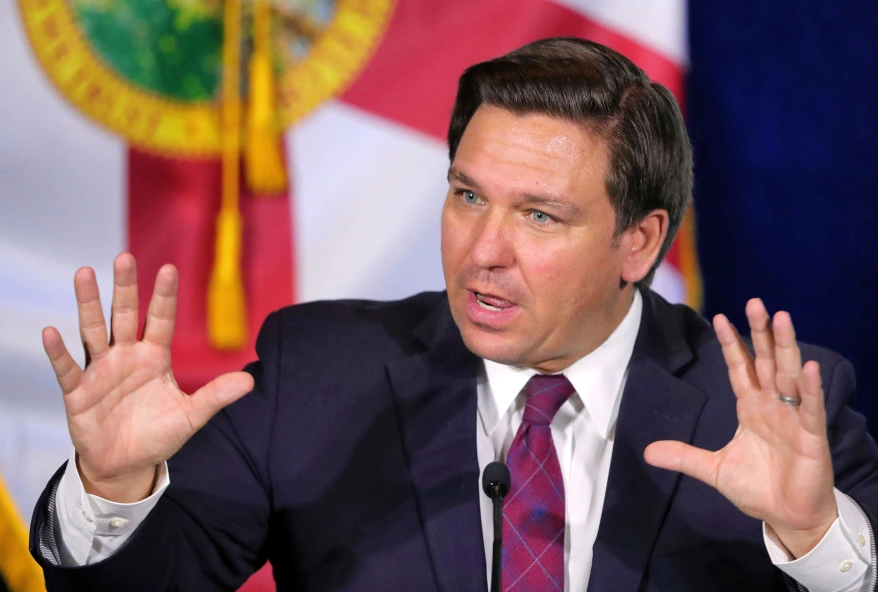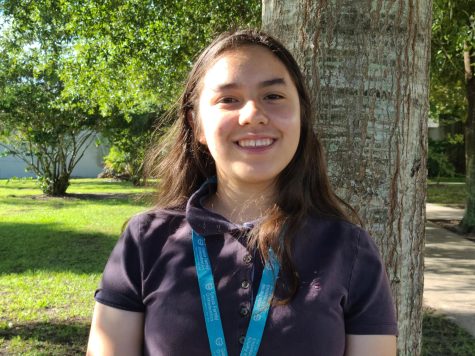Bans Flooding Across Florida, and Its Controversial Waves in Summary
Bans on diverse topics have been sweeping through Florida, leaving many to wonder what this means for students.
May 11, 2023
Across the state of Florida bans have been sweeping through on diverse topics. Starting from book banning to banning all talks on gender identity and sexual orientation through high school, what does this mean for students and people of Florida?
Beginning in the July of 2022, HB 1467 started off by requiring school districts to be transparent in their selection of instructional and library materials. After this bill passed over 350 books have been banned from school libraries. Currently, the ban system in place involves any complaint made by anyone in or out of state on a book will have it with drawn from shelves. From then on, the book will need to be reviewed by a committee to see if it gets a pass or if it is fully banned from Floridian schools. Usually, books under this ban involve any themes of sexual orientation or gender identity, such book titles as “Ivy Aberdeen’s Letter to the World” by Ashley Herring Blake and “Not All Boys are Blue,” by George M. Johnson. The ban has also targeted books due to racial issues such as, “Sulwe,” by Lupita Nyong’o and Vashti Harrison.
Book banning has been very controversial in Florida. Ron DeSantis has claimed that the book banning in schools is to save students from ‘indoctrination,’ while others have said the banning violates the 1st amendment rights such as freedom of press and speech. Retired Navy Officer Wess Rexrode had voiced, “I want my son exposed to different ideas and different viewpoints so that he can learn to think critically and not be force fed somebody else’s opinion. We have all been exposed to different opinions. It makes us better, makes us stronger.” Others point out that students still have access to the internet and book bans will not stop them from learning about different sexualities or gender identities, among many other topics not available in school.
Then came HB 1557, the Parental Rights in Education Act, commonly named the “Don’t Say Gay” bill. This bill banned any topics of sexual orientation or gender identity in schools up to the 3rd grade. Followed by HB 1069, the ban expanded through 8th grade and prohibited staff from using student’s preferred pronouns. Now it takes effect to the 12th grade after Ron DeSantis passed the ban, not in a law but through Florida’s School Board. Additionally, a law forcing girls to reveal their period cycles to participate in school sports passed as lawmakers try to ban transgender girls from participating on girl sport teams.
This came together with a house bill that bans gender affirming processes, and any parents having their transgender child have puberty blockers, or hormone replacement therapy be labelled as child abuse. Under this law parents may have their child be taken away if they have their child do gender affirming care. This ban also follows along with the bans of books on LGBTQIA+ topics. Republican lawmakers who have passed the bill praise it, such as Republican lawmaker Clay Yarborough, who stated that the bill “can maintain an appropriate learning environment for all students and teachers.”
However, with support comes opposition. Nathaniel Frank, the director of the What We Know Project, wrote that while the bill was aimed to protection students it was “heightening division, undermining trust, hampering morale and driving capable people away,” adding on the bill does nothing but hurt LGBTQIA+ people. People feel that this ban just tells the LGBTQIA+ people in Florida that they do not exist. Some fear that children who are part of the community will suffer confusion due to their feelings and feel lost and weird when the place they live in criminalizes them. And recently the ban also started to affect Drag Shows as children are banned from seeing them, and plays with LGBTQ themes being performed, such as the shutdown of “Indecent” at the Jacksonville School of the Arts.
HB 1069, dubbed the “Don’t Say Period” bill, passed and bans any discussion of periods in primary schools and will take effect July 1st. Republican lawmaker Stan McClain had voiced, “McClain makes the claim that the bill’s intent is to bring uniformity to sex education across Florida’s 67 school districts,” and added it was for parents to voice their say on what they deemed appropriate for young children. Others just say it is a normal bodily function and there should not be any taboos about it. Girls typically start their period when they are twelve, but it is common for some to start as early as eight years old. Parents have stated that schools should be a safe space, and teachers should be able to tell their students about what is happening to them as parents do not want their child to be horrified and confused about their period.
In addition, some point out that some girls may only have a father figure in their life who may not be all too knowledgeable on periods and so school should be a place their child could learn how to manage it. Some also ask if the ban criminalizes teachers who want to help their students, such as having menstrual materials in their classroom in case of an emergency.
Then came the ban of AP African American Studies which had it banned from high schools, and students who took the course prior to the law did not receive collage credit. Though recently College Board had announced that the course will be making a return after having to remove topics including Black Lives Matter, slavery reparations and queer life from its curriculum. The law also stops state colleges from funding diversity, equity, and inclusion programs. Ron DeSantis has said, “we want education and not indoctrination,” and added it lacked education value as he targeted the topics of Black queer studies, the Black Lives Matter movement, Black feminist literary thought, the reparations movement, and the Black struggle in the 21st century. Others ask what this mean. Does this mean that people are just one and there should not be diversity? Some ask what is so wrong with the course? What is so wrong with teaching people about people of other races and their issues? National Urban League President and CEO Marc H. Morial had stated, “If College Board is to regain the nation’s trust, it must restore every element of the AP African American History course that it stripped away in its effort to pander to right-wing extremist censorship.”
With more bills on the waiting list, some praise the path Florida is taking while others resent it. Some say the bans are there to protect children, but there are people who ask: how do you tell when fear and hatred is disguised as protection for the most vulnerable?


